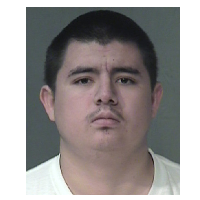First Person Convicted by Trial of Racketeering for Crime on the Internet
 David Ray Camez
David Ray Camez
The same legal tool used for decades to punish organized crime cartels has been brought to bear for the first time on criminals using the Internet for their schemes.
David Ray Camez was convicted last week in Las Vegas under the federal Racketeering Influenced Corrupt Organizations Act (RICO) for using stolen credit card information and counterfeiting equipment obtained through Carder.su.
The website has been described as an eBay for criminals and identity thieves.
Prior to Camez’s conviction, crimes such as his would have been tackled using laws specific to such offenses. But prosecutors wanted to punish Camez for racketeering, perhaps to send a message to others like him: use the Internet for your scams and you’ll pay a hefty price.
He now faces a prison sentence of up to 20 years, which is on top of the seven years he was already serving after he was convicted of fraud by the state of Arizona.
“The government’s win has implications for users of websites like the relaunched Silk Road drug site, file sharing services, or any online forum that’s primarily used for illegal purposes,” Kevin Poulsen wrote for Wired. “Minor scofflaws using such a site could, under the RICO model, be punished with the same severity as the worst offender.”
Although Camez is considered a small-time crook, the jury’s verdict under RICO made him legally culpable for all the crimes committed by the nearly 8,000 users of Carder.su. The government concluded that those crimes amount to $50.5 million in losses, which resulted in the lengthy sentence.
Camez was trapped by the government in 2009 as part of a four-year undercover Secret Service operation that involved the infiltration of Carder.su and the sale of top-quality, fake IDs created by the Nevada Department of Motor Vehicles. Sales were made to 100 criminals around the globe, which led to four federal grand jury indictments against 55 people in 10 different countries.
Although the alleged ringleaders of the website were indicted, they reside in Russia, outside of the U.S. government’s reach.
“They never intended to get the main guys,” Camez’s attorney, Chris Rasmussen, told Wired. “They’re only going to get the college kids that came in, and guys like Camez.”
The crime Camez committed that brought him to the attention of the Secret Service was to pay $330 for a fake Arizona driver’s license.
-Noel Brinkerhoff, Danny Biederman
To Learn More:
Guilty Verdict in First Ever Cybercrime RICO Trial (by Kevin Poulsen, Wired)
In Las Vegas Courtroom, First Ever Cybercrime RICO Trial Begins (by Kevin Poulsen, Wired)
Miami Man Pleads Guilty in Las Vegas on Charges Tied to ID Theft Cybercrime Organization (Associated Press)
- Top Stories
- Unusual News
- Where is the Money Going?
- Controversies
- U.S. and the World
- Appointments and Resignations
- Latest News
- Trump Orders ICE and Border Patrol to Kill More Protestors
- Trump Renames National Football League National Trump League
- Trump to Stop Deportations If…
- Trump Denounces World Series
- What If China Invaded the United States?






Comments